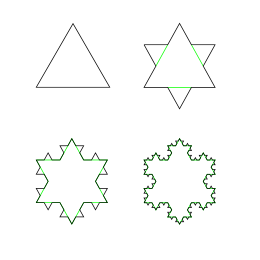|
|
 Originally Posted by OngBonga

Well it's neither reasonable nor provable because the concept of infinite distance is itself flawed.
Yes. Whenever we handle infinities, we have to be careful not to use them foolishly.
In this case, we're asking, "What is the gravitational potential energy of a mass when you measure it from 'very far' away?"
And to do so, we write the equation for the effect as a function of distance. In this case, it's U = GMm/r, where U is the potential energy in J, G is Newton's gravitational constant in N*m^2/kg^2, M is the mass of the object in question in kg, m is the "test mass" in kg, and r is the distance between the 2 masses, in m.
The "test mass" is a mathematical construct, but unimportant to explain, as it is a constant and the only variable in the equation is the r in the denominator.
We can see that as r increases, U decreases. There is no limit to the bigness of r, so no limit to the smallness of U. What we're really saying is that if r is arbitrarily large, then U is arbitrarily slight, which is perfectly reasonable.
 Originally Posted by OngBonga

Surely every region of spacetime is curved? Surely your original comment was techincally correct?
:/
I'm now torn, because I'm thinking I got it wrong 2 times, and I'm hesitant to put anything out there at this point.
My GR is weak.
I'm currently leaning toward you being correct, here.
OK, I flagged down a grad. student to make sure I'm not putting my foot in my mouth for the 3rd time on this.
Curvature is related to the 2nd derivative of the field in question. Since all mass charge has the same sign, there are no inflection points within the field, meaning there is nowhere where the sign of the curvature flips. Therefore there is nowhere that the 2nd derivative is 0, and therefore there is nowhere that the curvature is 0.
 Originally Posted by OngBonga

I mean the top of the hill, it's not "flat" except from the frame of reference of those on earth looking at it. And even then, down to the molecular level, it's not flat at all.
OK, not for nothing, but you inspired me to take a question you didn't pose a bit too seriously, and after talking to a couple of doctorates in physics who work in GR, I can only say that it's an excellent question which exposes a contradiction in my understanding and which I haven't rooted out as of now. I.e. something that I think I'm saying is not what I'm saying and no one I've spoken to has figured out exactly which of the many things I'm saying is the wrong one(s).
So. Your statement that "what is the top of the hill is a matter of perspective" is boneheaded UNLESS you're talking about observers moving at relativistic speeds, and in that case, it's a doozy.
OK, so how shall we define the "top" of the hill. I propose that we generalize away from a hill (made of molecules) to a field which is curved. Instead of talking about the "top" of a hill, let's talk about an equilibrium position in the field. This does describe a hill, but generalizes to a more broad collection of cases.
Now, a reasonable definition of an equilibrium position is one where the slope of the field is perpendicular to the force caused by that slope. This is nice, as it means that we can definitively say that an object at rest w.r.t. the field is invariant to all observers, as predicted by GR. I.e. no observer should see the object moving w.r.t. the field, no matter how that observer is moving or accelerating.
However, that annihilates the previous definition of the force being perpendicular to the field, because angles are not preserved in Lorentz transformations. So something is wrong. That definition of an equilibrium position seems to not fit, but it has to fit because no observer should observe the object moving w.r.t. the field, which means no portion of the force is parallel to the slope of the field, which gets us right back where we started.
Summary: This is a fun question to ponder, and I wouldn't suggest holding your breath for me to deliver a concise explanation any time soon. There's a clear contradiction in my understanding and even the people I spoke to didn't see the flaw right away.
Kudos for this. It was an otherwise boring day until you got me thinking about this.
|



 Reply With Quote
Reply With Quote


















